New Scientist covers the latest developments in science and technology that will impact your world. New Scientist employs and commissions the best writers in their fields from all over the world. Our editorial team provide cutting-edge news, award-winning features and reports, written in concise and clear language that puts discoveries and advances in the context of everyday life today and in the future.
Elsewhere on New Scientist
Open science • We should discuss controversial research in public to avoid a backlash
New Scientist International Edition
Bird’s-eye view of a Starship
Europe faces wave of hot summers • A big ice melt in Greenland last year could trigger hotter, drier weather in Europe this year and next, according to a study of the past four decades, finds Michael Le Page
Organoids made from uterus fluid could help treat medical conditions before birth
Smart glasses can ‘hear’ where you are looking
Google launches quantum quest • A $5 million prize aims to help quantum computers live up to their potential
Lone orca seen hunting a great white shark
Lasting pain after a UTI may be due to excess nerve cells
Earliest known sex chromosomes evolved in ancient octopuses
Field notes JET nuclear fusion reactor, Oxfordshire, UK • How do you recycle a nuclear fusion reactor? In a world-first recycling attempt, engineers are hoping to learn key lessons to enhance future nuclear fusion projects, finds Matthew Sparkes
Something from nothing • The absence of predators to worry about may have helped us conceptualise the idea of “zero”
Miso paste made in space opens new food frontier
Analysis Personalised medicine • Does 23andMe’s decline show genetic-based medicine has been overhyped? For years, personal genetics firm 23andMe has seemed to represent the future of healthcare, but now it is in dire financial straits. What went wrong, asks Clare Wilson
Pythagoras was wrong about music • The idea that musical notes sound best in certain mathematical combinations doesn’t seem true
Magnetic particles turn water drops into acrobats
Promising exoplanet may not be habitable ocean world after all
Light flashes may slow Alzheimer’s by making the brain remove toxins
AI maths skills get a Star Trek boost • Chatbots get better at sums if you ask them to answer as if they were a Starfleet captain
Follow a dog for 15 minutes to make a new friend
Analysis Coronavirus • Does even a mild case of covid-19 affect your cognitive skills? A big study suggests that people who catch the disease do worse on cognitive tests, but the findings are far from definitive, says Michael Le Page
Hyaluronic acid skin benefits oversold
AI designs bespoke 3D-printed eyes
Greener way to dye denim could cut its climate impact
Really brief
Mind your manners • Living in close proximity to strangers requires shared social norms, but the concept of civility can be used to divide us, says Kirsty Sedgman
Field notes from space-time • Elementary physics An experiment to study the elusive neutrino particle is also providing the perfect conditions to seek evidence of proton decay, says Chanda Prescod-Weinstein
Worlds apart
Life and climate, a co-production • The histories of Earth’s climate and ecosystems are completely connected, as a smart, whistle-stop tour of the past makes clear, says Michael Marshall
A world to win… • Dune defeats most directors. How does Denis Villeneuve fare in the second instalment of his take on the novel, asks Simon Ings
New Scientist recommends
Islands of wonder • A zoologist’s exploits in Indonesia, with exotic beasts and wild men, reads like an adventure story. But in important ways,...

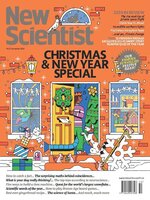 Dec 14 2024
Dec 14 2024
 Dec 07 2024
Dec 07 2024
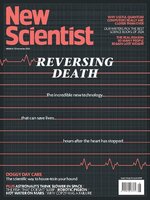 Nov 30 2024
Nov 30 2024
 Nov 23 2024
Nov 23 2024
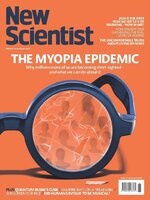 Nov 16 2024
Nov 16 2024
 Nov 09 2024
Nov 09 2024
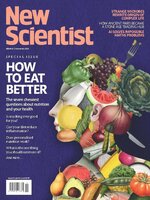 Nov 02 2024
Nov 02 2024
 Oct 26 2024
Oct 26 2024
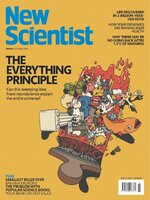 Oct 19 2024
Oct 19 2024
 Oct 12 2024
Oct 12 2024
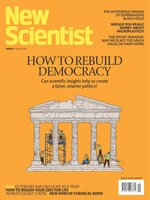 Oct 05 2024
Oct 05 2024
 Sep 28 2024
Sep 28 2024
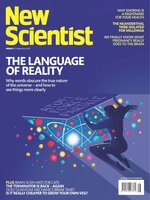 Sep 21 2024
Sep 21 2024
 Sep 14 2024
Sep 14 2024
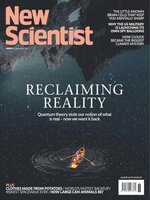 Sep 07 2024
Sep 07 2024
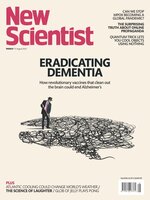 Aug 31 2024
Aug 31 2024
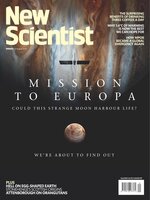 Aug 24 2024
Aug 24 2024
 Aug 17 2024
Aug 17 2024
 Aug 10 2024
Aug 10 2024
 Aug 03 2024
Aug 03 2024
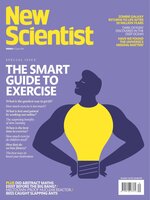 Jul 27 2024
Jul 27 2024
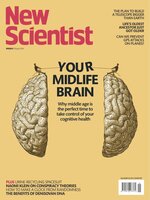 Jul 20 2024
Jul 20 2024
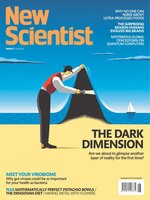 Jul 13 2024
Jul 13 2024
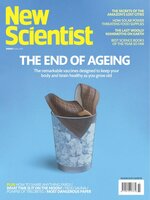 Jul 06 2024
Jul 06 2024
